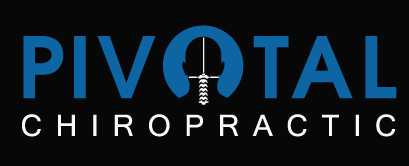Mini Cold-Plunge: The Benefits of a Cold Shower
Are you looking for easy tweaks to improve your overall wellbeing?
Have you noticed that your skin or hair feel dry after a hot shower?
If you’re tuned into the fitness world, you may have been recently hearing about the benefits of cold plunges: reduced inflammation, improved immune system, improved sleep, better mood, etc. Well, you can get very similar benefits by simply taking a cold shower!
To enjoy a boost to your health and energy that lasts all day, start off with hot water and slowly adjust the temperature until it’s cold but tolerable. Spend at least five minutes under the water before getting out.
Here are six powerful health benefits that come from taking a cold shower:
Increased Energy
Stepping into a cold shower instantly ramps up your heart rate, and the rush of blood through your body will quickly wake you up. You might even find that a few minutes under cold water is just as effective as a piping hot cup of coffee.
Natural Depression Treatment
Research from the Virginia Commonwealth University School of Medicine revealed that short, cold showers can activate the “blue spot” in a person’s brain. This area is the brain’s main source of nor-adrenaline, a feel-good chemical known for relieving feelings of depression.
Faster Recovery for Athletes
After a strenuous workout, it’s common for athletes to relax in an ice bath. Not only does this numb them to any post-workout pain, but the cold water reduces inflammation and speeds up the recovery process. You can get similar benefits from taking a chilly shower after intense training sessions.
Healthy Skin and Hair
Does your hair or skin feel extra dry after a hot shower? Hot water strips moisture from your skin and hair almost instantly. To avoid moisture loss, turn down the temperature when you jump in the shower—your hair and skin will look and feel a lot better in the long run.
Increased Testosterone for Men
Prolonged exposure to cold water has been shown to increase testosterone production in men, enhancing overall strength and energy.
Better Circulation
Good cardiovascular health depends on getting enough blood pumping through your veins. Alternating between hot and cold water in the shower is an easy way to boost circulation. Cold water causes your blood to move towards your organs to conserve heat, and warm water brings it to the surface of your skin.
Improve Your Wellbeing with an Ann Arbor Chiropractor
There’s much more to cardiovascular health than taking a cold shower! Regular visits to a chiropractor can help support a healthy lifestyle and recovery from injury by protecting your joints, spinal discs and nerves. If you are looking for a holistic Ann Arbor chiropractor, call Pivotal Chiropractic at (734) 221-0362 or schedule a complimentary consultation!



